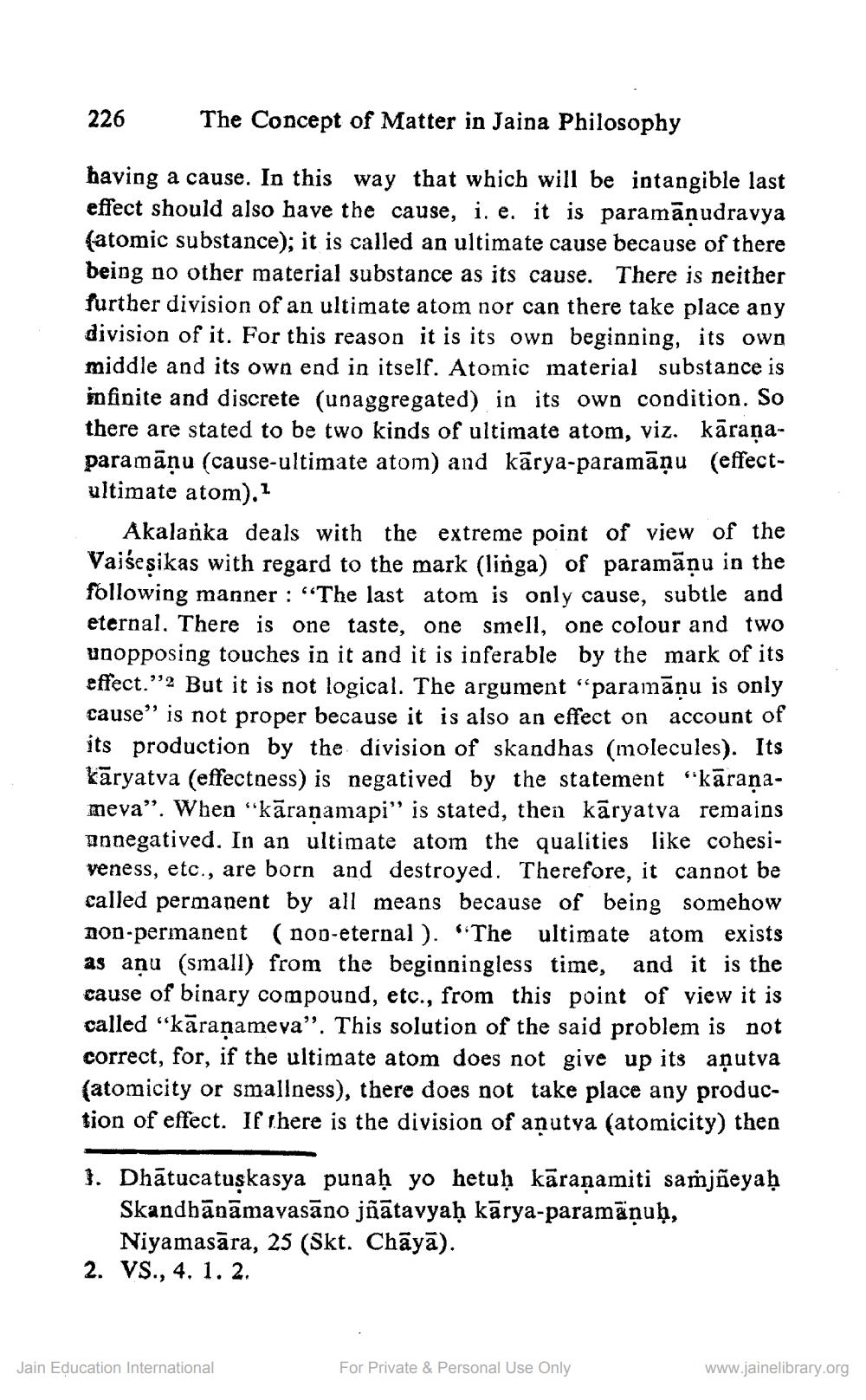________________
The Concept of Matter in Jaina Philosophy
having a cause. In this way that which will be intangible last effect should also have the cause, i. e. it is paramāṇudravya (atomic substance); it is called an ultimate cause because of there being no other material substance as its cause. There is neither further division of an ultimate atom nor can there take place any division of it. For this reason it is its own beginning, its own middle and its own end in itself. Atomic material substance is infinite and discrete (unaggregated) in its own condition. So there are stated to be two kinds of ultimate atom, viz. kāraṇaparamāņu (cause-ultimate atom) and kārya-paramāņu (effectultimate atom).1
226
Akalanka deals with the extreme point of view of the Vaiseṣikas with regard to the mark (linga) of paramāņu in the following manner: "The last atom is only cause, subtle and eternal. There is one taste, one smell, one colour and two unopposing touches in it and it is inferable by the mark of its effect." But it is not logical. The argument "paramāņu is only cause" is not proper because it is also an effect on account of its production by the division of skandhas (molecules). Its karyatva (effectness) is negatived by the statement "kāraṇameva". When "kāraṇamapi" is stated, then karyatva remains annegatived. In an ultimate atom the qualities like cohesiveness, etc., are born and destroyed. Therefore, it cannot be called permanent by all means because of being somehow non-permanent (non-eternal). "The ultimate atom exists as aņu (small) from the beginningless time, and it is the cause of binary compound, etc., from this point of view it is called "karaṇameva". This solution of the said problem is not correct, for, if the ultimate atom does not give up its aṇutva (atomicity or smallness), there does not take place any production of effect. If there is the division of anutva (atomicity) then
1. Dhatucatuṣkasya punaḥ yo hetuḥ kāraṇamiti saṁjñeyaḥ Skandhānāmavasano jñātavyaḥ kārya-paramäṇuḥ,
Niyamasāra, 25 (Skt. Chāyā).
2. VS., 4. 1. 2.
Jain Education International
For Private & Personal Use Only
www.jainelibrary.org




